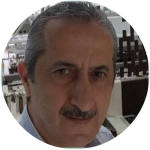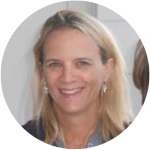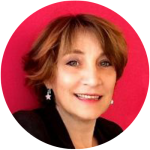The Cape Town Open Education Declaration states that …
Open education is not limited to just open educational resources. It also draws upon open technologies that facilitate collaborative, flexible learning and the open sharing of teaching practices that empower educators to benefit from the best ideas of their colleagues. It may also grow to include new approaches to assessment, accreditation and collaborative learning. Understanding and embracing innovations like these is critical to the long-term vision of this movement.*
Source: http://www.capetowndeclaration.org/read-the-declaration
While there is no single answer to the question, what is Open Education, people have been trying to script a definition since the term Open Educational Resources (OER) was coined 15 years ago.
What YOU can Do Now
What do you think of this definition?
Please click on the ![]() to share your thoughts, ideas, resources and experiences:
to share your thoughts, ideas, resources and experiences:
- What does Open Education mean to you?
- Why is it important?
- How has it changed things for your students or colleagues?
- What role do you see it playing in the future?
Other OEGlobal Connect posts that cover this topic:
- What is open education?
- Does everybody understand when we talk about "OPEN EDUCATION? - #3 by angemtzm
To get you started, below are interviews conducted initially for the Year Of Open in 2017 with Open Education contributors from around the world. Many of these opinions are still relevant.
Dr. Fawzi Baroud
Assistant Vice President for Information Technology,
Notre Dame University, Lebanon
Twitter: @fbaroud
What is Open Education?
Baroud: Our understanding of open education in the Middle East and North Africa (MENA) region hinges on widening access to free and licensed content of educational resources for purpose of formal and non-formal education, research, as well as collaboration among educational institutions and economic sectors. The MENA region is in dire need for transparency and access to information; openness represents a continuation of Jomiten, Thailand in 1990 Education for All and subsequent declarations such as the Millennium Declaration 2000, but with a focus on access to learning material for all in the 21st century MENA region. The adoption of OER in educational contexts is leverage to pedagogical innovation through the purposive use of technology in teaching and learning. Much of the non-formal of education in the MENA region goes unrecognized by ministerial regulations due to unresolved issues of diploma mills and the near absence of a Regional Framework for the recognition and transferability of credits. Open badges, for example is a credentialing system that supports recognition of earned experiences in education and sets the tone for establishing frameworks for recognition of open modes of learning. Collaboration would strengthen cooperative links among educational institutions in research, learning, innovation, exchange and mobility.
Why do you think Open Education is important?
Baroud: The perceived importance of open education is variegated as it shifts in education from the entrenched traditional education in brick and mortar institutions to a more flexible and accessible approach for learning for all, opening horizons and vistas for cross-regional collaboration, social cohesion, and sustainable economic development. With masses entering education in the region because of population growth and rising awareness about the importance of education in social and economic upward mobility, open education reduces costs on students and institutions alike and alleviate the financial burdens on public sector of education. Thus, open education is a medium for overcoming barriers to education.
Dr. Glenda Cox
Senior Lecturer, University of Cape Town
Twitter: @Glencox
What is Open Education?
Cox: From my perspective, Open Education includes making freely available, under an open license, all materials that makeup education. This could include every kind of teaching material which could range from an entire course to an image or an infographic. Importantly, it includes entire textbooks. From my perspective, I also feel that open-access research articles also make up a very important component of education and therefore they can also come under this broader banner of Open Education. In addition to that, I feel that part of Open Education is also Open Science and Open Data because all these aspects can be included as part of education. As an open educational practitioner, I feel that for me to truly walk the talk of Open Education I need to be considering sharing all these different aspects so data, research, teaching materials, slideshows, and presentations all these different aspects. I believe all of that makes up Open Education.
Why do you think Open Education is important?
Cox: I think Open Education is important because it extends the reach of teaching, learning and research materials beyond the classroom. At the school level, Open Education gives teachers and learners access to materials and textbooks that they previously would not be able to get hold of. That’s related to cost and I will talk about that a bit more later. In tertiary education, there are a number of problems or crises or concerns not only in the Global South but across the globe. Tertiary education is very expensive. There are limited spaces available meaning many people cannot get access to tertiary education and even if they do there is a variable quality between the different tertiary education institutions that you can go to. Open Education is important because having materials openly available and textbooks openly available allows teachers and students or learners at those institutions to have access to materials that they normally would not be able to afford. So it is a potential solution to some of the crises in higher education not only in the Global South but across the world.
Allen Rao
Global Business Director, Netease Online Open Courses,
Beijing, China
Twitter: @allennetease
What is Open Education?
Rao : I heard this term over a year ago. Open Education is like free education that was initiated and promoted by many enthusiastic education experts. They wanted to created free access to education to all people around the world especially those people who have poor access to education. Open education provides them [people with poor access to education] with a way to help them get easy access to education and get well educated. That’s the first impression that I have of Open Education. Also, it is easier and more efficient education. Open Education is mostly online (online education). People don’t need to travel far to constrain themselves in a classroom. It is more efficient than traditional conventional education.
Why do you think Open Education is important?
Rao : It helps those with poor access to education to get educated. It helps them to break financial and territorial barriers. Education is really not somebody’s property. It should be
something that everyone has the right to have access to. Open Education helps to provide such solutions to those people who have maybe some physical, financial or geographical barriers leading to poor access to education.
Open Education is especially relevant in China. For example, when students graduate from high school they need to take college entrance exams if they want to continue studying at colleges or universities. Annually, millions of high school graduates need to take these exams. Only 1/3 of these graduates are able to pass the entrance exams in a way that allows them to continue studying at colleges or universities. That means more than half will fail the exams and won’t be able to study at universities or colleges. What will happen to them? Many will have to find jobs immediately. But, because of lack of skills, all the jobs will be low-paying jobs. If they really want to continue studying at a university they need to have rich parents who will help them with financial support to study further. Open Education helps these people who either fail the exams or who work in low-paying jobs to learn new skills as long as they have internet access so that they are able to have access to education, get self-educated really, and learn new skills.
I would like to share an interesting story about Netease Online Open Courses: A user of our courses came to our offices one day and wanted to donate 4000 Yuan to us [to support the platform, Netease Online Open Courses]. We were quite surprised about that and wanted to know why this person wanted to donate so much money to us. He said that because of the online open education that we have provided it really changed his life. He was one of the people I mentioned earlier who failed the college entrance examination. He ended up working at a construction site in a very low-paying job. He was interested in interior design and found a course on our website. He studied it online by himself for about a year and then an opportunity presented itself to use this new skill [interior design] in his work. He impressed his boss. He was then promoted from being a construction worker to being an interior designer in a big construction company. His pay was at least tripled. He owed this all to the free Open Education from Netease Online Open Courses. For this reason, he wanted to donate that much money to us. That’s a really good feeling. People like him and millions of others are benefiting from free Open Education.
Interview with Dr. Peter Smith, Orkand Chair
Professor of Innovative Practices in Higher Education,
University of Maryland University College
Twitter: @PeterPSmith
What is Open Education?
Smith: Open education is the beginning of an era which will only expand, what I call, free range learning. It is the ability to allow people to have the equivalent of a personal global positioning system, a GPS for learning. And they will be able to find resources, support, and advice that they need. It can be organized by an institution or an agency, or even organized by the learner themselves. Open education is a revolution in the relationship between people learning and content, a more personalized learning path. Personalized learning isn’t a thousand solutions for a thousand people. It could be ten solutions for a thousand people. Personalized learning is where I, as the learner, know why I’m doing what I’m doing, what it’s going to do for me, and how I’m going to get where I want to go. So, it’s a personal engagement and attachment of the learner to the course; it’s active learning. Open education is one the variables that creates the opportunity for personal learning.
Why do you think Open Education important?
Smith: Open education will play an organizing role in the coherence of personal learning. What’s very important about open education is that all this personal learning whether – experiential or sponsored can be brought into play in a learning profile. People learn all the time. Personal, sponsored, and experiential learning will all be brought together in a learning profile for a person; that’s where we are headed. Open Resources is in the middle of it. I hope open resources play an organizing role. Right now, it’s like skiing in a blizzard without goggles. We need to get the goggles and we need coherence. Open education can play a role of organizing the coherence for the learner.
Sophie Touze
Head of Innovation and eLearning at VetAgro Sup,
University of Lyon, France
Twitter: @sophie2ze
Why do you think Open Education is important ?
Touze : As a world in crisis where young people no longer have any guideposts, education has the strong virtue of giving them benchmarks and meaning. Open education, with its people-centered orientation and values, has a fundamental role to play in society.
Open education is a successful example of what more and more people believe: The right of everyone to have access to the education the desire to become a free and happy being and realize his ambitions. This has become possible at almost no cost by simply opening the pedagogical contents of universities, schools, etc.
Open education follows the emerging model of digital culture oriented towards mass education, a true bottom-up approach. This participatory and democratic model, already effective in several fields, recently demonstrated by the Open Government summit in Paris (December 7-9, 2016) and its 5,000 participants. It needs to be widely understood and understood for maximum effectiveness. The culture of Open must be taught to all. Open education must take this role.
New to Open Education? 
Curious to explore? Start here!




